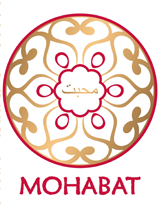The biggest obstacle, however, is the lasting unrest in Kashmir, which isolates the region from outsiders. As a result, the continuation of the art in Kashmir is facing a lot of challenges, with very few young people willing to learn the craft.
In Kashmir, weaving a silk carpet by hands requires months or even years of intensive work. The high costs make it difficult for the products to receive proper appreciation and remuneration. Many artisans have turned away from the craft and decided to work on the farms instead. In order to once again assemble the experienced artisans and work out a management system, Imran did all he could to unite his family members and friends to visit the mountains together.
